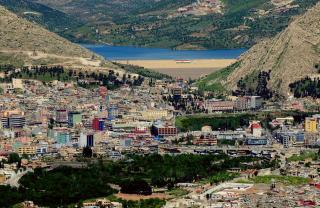This is the second case study from SUEUAA (Strengthening Urban Engagement in Universities in Asia and Africa), written by Doctor Kemal Ketuly of the University of Duhok. The project is interested in how Universities in the Global South can contribute to solving geographical, economic and social issues in their cities. The project is looking at six cities in six different countries: Harare (Zimbabwe), Dar-es-Salaam (Tanzania), Johannesburg (South Africa), Manilla (Philippines), Duhok (Iraq), and Sanandaj (Iran).
The SUEUAA project involves academics from each of these cities, who will be carrying out fieldwork, and elite interviews with decision makers in the city and senior academics from local Universities, to better understand the ability of Universities to respond to city issues. This blog post highlights the importance of implementing inclusion into the education system of Iraq.
Nearly three years have passed since the first small delegation from Carl Von Ossietzky University of Oldenburg, consisting of Prof. Dr. Monika Ortmann and psychologist, Dorin Strenge, visited the University of Dohuk to explore possibilities of a cooperation program and a university partnership in the field of education. The goal was to initiate a process of inclusion of people in the community with impairments and to create means whereby the education system could make a contribution to a more humane and tolerant society. By ratifying the “Convention on the Rights of Persons with Disabilities” at 20th of March 2013, the government of Iraq committed itself to take the necessary steps in a direction of enabling people of all ages with different abilities and handicaps participation in all aspects of society.
After intensive work and a successful continuous collaboration, much progress has been made. Financially funded by the DAAD (German Academic Exchange Service), a major step was made in May 2014, when the presidencies of both universities signed a “Memorandum of Understanding / Agreement of Cooperation”.
Core of the collaboration is a joint programme at University of Dohuk, Disability Studies and Rehabilitation, which has been running for already two years and serves a growing number of students (2016: 53 students in the first cohort and about 140 in the second in 2017), who could be the future in creating opportunities for disabled people in Duhok, Kurdistan and the whole of Iraq.
This initiative is one of a number that will be reported in forthcoming SUEUAA Thematic Papers.

